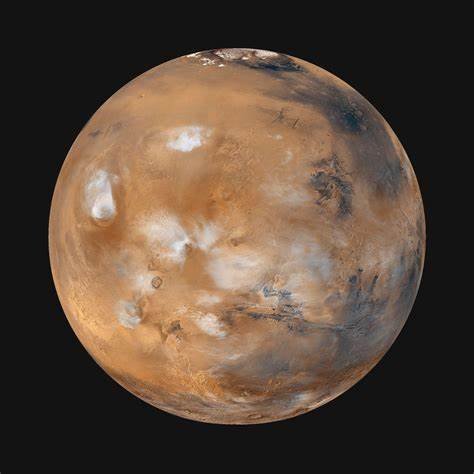The quest for extraterrestrial life has long been a compelling motivator for numerous space missions. Mars, with its enigmatic red terrain, stands out as a particularly intriguing target due to its potential to sustain life. While recent missions have made significant strides in this quest, shocking revelations have emerged, suggesting that life on Mars may have been discovered decades ago, only to be inadvertently destroyed.
In a startling claim, Dr. Gilbert Levin, a former NASA scientist and principal investigator of the 1976 Viking mission, asserts that evidence of microbial life was detected on Mars over 50 years ago. The Viking mission, comprising two robotic landers, touched down on Mars in 1976 with the primary objective of conducting experiments to search for signs of life.
One of the experiments, known as the Labeled Release (LR) experiment, involved injecting a nutrient solution containing radioactive carbon into Martian soil samples. The idea was that if microbial life were present in the soil, it would metabolize the nutrients and release radioactive gases as a byproduct. Remarkably, the LR experiment yielded positive results, indicating the presence of microbial life in the Martian soil.
However, the interpretation of the results was met with skepticism within the scientific community. Critics argued that the observed release of gases could be attributed to non-biological processes rather than microbial activity. Consequently, NASA refrained from confirming the presence of life on Mars, citing the need for further investigation and confirmation.
Decades later, Dr. Levin stands by his conviction that the LR experiment did indeed detect life on Mars. In a recent interview, he lamented that NASA missed a historic opportunity to confirm the existence of extraterrestrial life. According to Dr. Levin, subsequent missions to Mars, including the Curiosity rover, have failed to replicate the LR experiment or conduct similar experiments to detect life directly.
The controversy surrounding the Viking mission and its implications for the search for life on Mars have reignited debates within the scientific community. Some researchers argue that the LR experiment’s results were inconclusive and that the presence of life on Mars remains an open question. Others contend that the findings merit further investigation and that future missions should prioritize the search for life on the red planet.
The revelation that evidence of life on Mars may have been inadvertently destroyed by NASA has sparked public interest and raised questions about the ethical implications of space exploration. If microbial life did exist on Mars, what responsibility do humans have to protect and preserve it? Should future missions to Mars prioritize the search for life and adopt measures to prevent contamination or destruction of potential habitats?
Moreover, the incident underscores the challenges and uncertainties inherent in the search for extraterrestrial life. Despite advances in technology and our understanding of Mars, the quest to unravel the mysteries of the red planet continues to be fraught with complexities. From the harsh Martian environment to the limitations of scientific instruments, numerous obstacles stand in the way of conclusively determining whether life exists beyond Earth.
As humanity looks to the future of space exploration, the lessons learned from the Viking mission and subsequent missions to Mars serve as a poignant reminder of the importance of rigor, transparency, and open-mindedness in scientific inquiry. The quest for extraterrestrial life is not merely a scientific endeavor but a profound philosophical and existential pursuit that has the potential to transform our understanding of the universe and our place within it.
In the wake of Dr. Gilbert Levin’s revelation, the search for life on Mars takes on renewed significance. Whether or not microbial life was indeed detected on the red planet over 50 years ago, the quest to unlock the mysteries of Mars and explore the possibility of life beyond Earth continues to captivate the imagination of scientists and the public alike. Perhaps one day, humanity will finally uncover the truth about life on Mars and our place in the cosmos.

